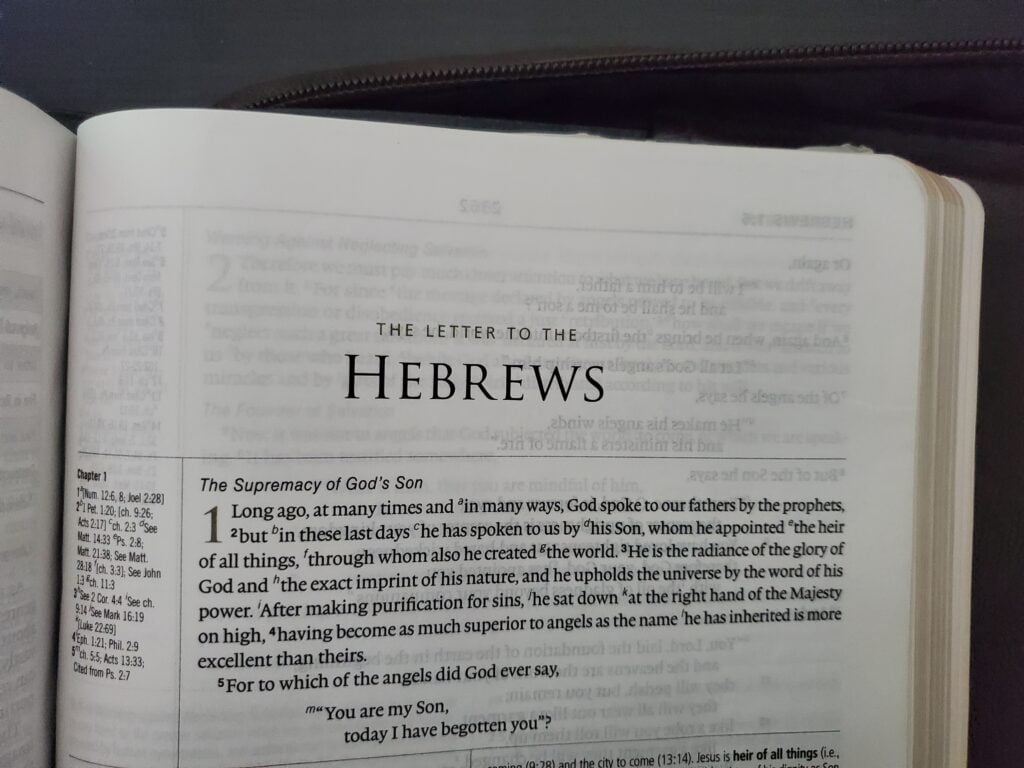⏱️ Estimated Reading Time: 3 min read
Hebrews 8:3, “For every high priest is appointed to offer gifts and sacrifices; thus it is necessary for this priest also to have something to offer.”
A return to the old covenant was attractive to the original audience of Hebrews because it would have made their lives much easier. Persecution from the temple authorities would have ended. Also, they would have returned to a priesthood that could be experienced merely physically. Even though the Melchizedekian priesthood of Christ surpasses the Levitical system (Heb. 7), it was tempting to forget this because so much of Christ’s priestly work is invisible. It takes place in the heavenly temple, out of our view, where Christ sits at the right hand of the Father (8:1–2).
Lest his readers forget the greatness of Christ’s priesthood, the author of Hebrews makes it clear that the teaching about the Melchizedekian order is not idle speculation. Rather, such an order really does exist, and Christ really does belong to it (v. 1). Because Christ is a superior High Priest, the covenant He mediates is superior to the old covenant. However, the typological connection between Melchizedek and Christ is not the only reason why the new covenant is superior to the old. The sacrifice that Christ offers also guarantees that the new covenant is better than the old.
In 8:3, the author begins to discuss the sacrifice offered by Christ and its relation to the old covenant sacrifices. After showing us that Christ is indeed a priest in verses 1–2 , the author, in verse 3, reminds us that “every high priest is appointed to offer gifts and sacrifices,” and “thus it is necessary for this priest also to have something to offer.” Christ truly is a priest; thus, He has a sacrifice to offer because we cannot have a true sacrifice without a true priest.
At this point in the epistle, few details are available concerning the nature of Christ’s sacrifice. They will come later as we examine chapters 9 and 10. Still, in passing we will note two things. First, Christ has something to offer, not somethings. Unlike the high priests of old, Christ offered only one sacrifice and offered it on only one occasion. Second, note the importance of sacrifices in the priestly role. As John Calvin notes, priests went before the Lord in order to plead for His favor to be shown to the people. His favor, however, was not obtainable without regular sacrifices. The favor we possess is eternal favor that comes because of Christ’s once-for-all sacrifice.
Coram Deo
There is a price for God’s beneficence to us. But it is a price that we cannot and would not pay even though it is required of us. God’s grace to us is manifested in the price Christ paid, a price necessary to bestow God’s favor upon us. No matter how far you progress in your knowledge, never forget the simple truth of God’s amazing grace.
Something to Offer, Copyright (2020), Ligonier Ministries.



